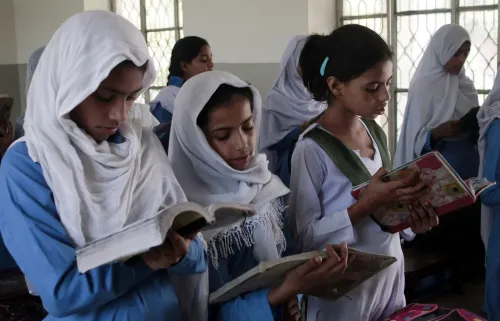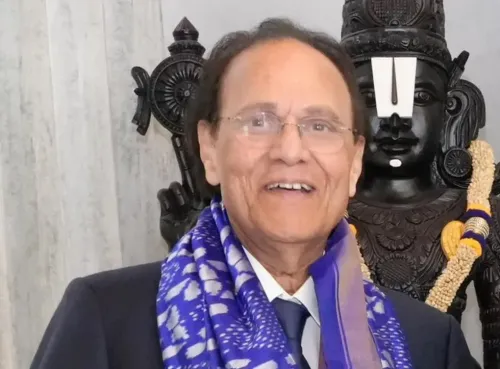Why is the Islamabad High Court Upset Over Police Inaction in Enforced Disappearance Case?

Synopsis
Key Takeaways
- High Court expresses displeasure over police inaction
- Demand for accountability from police officials
- Case relates to enforced disappearances in Pakistan
- Previous penalties imposed on police for similar failures
- Importance of judicial compliance in law enforcement
Islamabad, Oct 12 (NationPress) The Islamabad High Court has voiced its significant displeasure regarding the police's failure to act in a case involving enforced disappearance and has mandated departmental accountability, as reported by local media on Sunday.
The court has requested a compliance report from the cabinet secretary concerning the initiation of proceedings against senior police officials, including the IGP.
The directive issued by Justice Akhtar Kayani demanded a compliance report from the secretary regarding a prior order that instructed the official to present the matter to the Prime Minister to commence departmental actions against the implicated police officers, as highlighted by Pakistan's leading daily Dawn.
The current IGP was requested to provide a report on whether any actions were taken against the joint investigation team members and investigative officers involved.
This case stems from an FIR lodged in 2015 for the recovery of Abdullah Umar, and the judge was deliberating on a contempt petition filed by the victim's spouse, Zainab Zaeem.
During the proceedings, Justice Kayani reminded the government officials of a previous order from 2019, which imposed a fine of PKR 2 million on senior police officials, including the IGP, due to their failure to locate Umar. The judge had also instructed the Accountant General of Pakistan Revenue (AGPR) to withhold their salaries until his recovery.
Justice Kayani pointed out that the earlier directive, which requested the Ministry of Defence to nominate officers from law enforcement agencies for a briefing, was not adhered to in both letter and spirit, as outlined in the court order.
During the session, Justice Kayani urged the respondents to fully comply with previous court orders and nominate an officer from the field formation for the upcoming in-camera briefing.
The judge remarked that the missing individual, Mohammad Abdullah Umar, was clearly an injured person who was incapacitated before his alleged abduction. The case was adjourned until November 11.
Numerous cases of enforced disappearances have been reported throughout Pakistan, with many families accusing the Pakistani forces of orchestrating these acts.
On October 6, the Baloch National Movement's Human Rights Department, Paank, alleged that Pakistani security forces forcibly disappeared a man from his residence in Balochistan's Khuzdar district amid a growing wave of enforced disappearances in the province. Paank identified the victim as Asad Ullah.
In a statement shared on X, Paank noted, "On October 5, 2025, Pakistani security forces forcibly disappeared Asad Ullah, son of Rasool Bakhsh, from his home in the Norgama Zehri area of Khuzdar district. He works as a shopkeeper."
Additionally, Paank reported that Hamid Baloch, a Gwadar resident, was forcibly disappeared from his hometown by a local death squad on October 5.
"On October 5, 2025, Hamid Baloch, son of Gwahram and a resident of Dando, Kulanch in Gwadar district, was forcibly taken from his hometown. Local sources indicated that the abduction was executed by a local death squad in collaboration with Pakistani security forces," Paank stated on X.
Paank highlighted another incident of enforced disappearance. In a post shared on X, the human rights organization reported, "Mumtaz Saleh was forcibly taken in Turbat. On October 2, 2025, Mumtaz Saleh, son of Saleh Zaheer, a native of Kashap, Dasht, and recently residing in the Gulshan Abad area of Turbat city, was forcibly abducted by Pakistani security forces."










